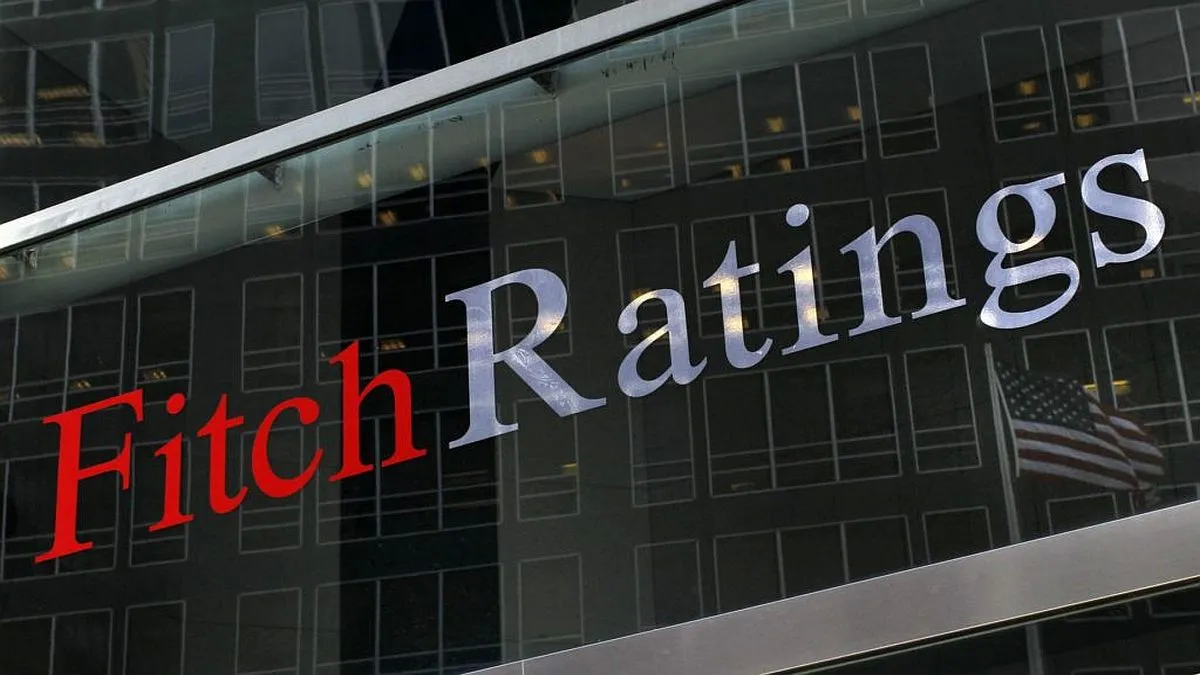The risk rating agency Fitch Ratings posted a warning for Uruguay regarding the status of your public debt in relation to the Gross Domestic Product (GDP); and he pointed out that although the tax rule is helping to improve the country’s fiscal credibility, it still needs to work on reducing debt.
The Uruguayan debt has been one of the alarm points for national economic development indicated by different international organizations and institutions, such as, even, the International Monetary Fund (IMF). In that sense, Fitch called to work with greater intensity to reduce the deficit, even despite the recent good results at the macroeconomic level that resulted in the improvement of the country’s credit rating by Moody’s.
“The fiscal rule of Uruguay is helping to improve fiscal credibility, but it has yet to anchor consolidation enough to fully stabilize debt/GDP, the US agency said in a statement published on its website. Only in this way, he insists, would he support a greater improvement than the one he received from the rating agency in June of last year—when it granted the rating BBB with stable outlook.
“The government returned to compliance with its fiscal rule introduced in 2020, including the associated spending limit, the net borrowing limit and the structural balance target. This was due in part to an escape clause in the debt limit invoked for the drought and a prior review of the structural balance objective,” the publication considered, highlighting the consequent greater credibility of the fiscal rule and the progress made with respect to a greater accountability and countercyclical policy; aspects supported, furthermore, by the social security reform.
However, he warned Fitch, “the norm has only provided a moderate consolidation” of the deficit; and noted that the government’s calculations regarding a greater improvement in the structural balance maintain “some uncertainty.” “For example, a negative output gap is assumed to be constraining income below its potential, but this is not guaranteed, and the outperformance of income in recent years (reflected in a 0.9 percentage point increase) of GDP since 2019) could mean that greater cyclical advantages will occur as incomes decline,” the agency considered.
“The recovery of the economy is limited”
“The recent relaxation of fiscal targets“Although modest, it highlights how consolidation is becoming more difficult,” he warned. Fitch regarding the points on which the Uruguayan government still needs to work. Above all, in an electoral year marked by some particular challenges such as the plebiscite against the social security reform promoted by the PIT-CNT.
“The social benefits They will add pressure, as their backward indexing will reverse savings from previous years. when inflation was high. Consolidation will therefore depend on a cyclical improvement in earnings, which is uncertain, and a spending restrictionwhich can be more difficult in a election year noted the rating agency.
Regarding the plebiscite, pointed out that revoking the reform in the pension system “could have significant implications for the Public finances and pension funds at the heart of the local capital market.” In any case, he considered that “for now, it seems unlikely that the referendum will be successful and the decision of the opposition coalition Wide Front Failure to support it indicates a basic political consensus around the economic model and the continuity of policies.”
Closer to improvement or regression?
“The public administration debt rose 4 percentage points to 63.3% in 2023, above the ‘BBB’ median of 55%, driven by a 2 percentage point increase in commercial loans and bonds and a 2 percentage point increase in bonds issued to recapitalize the central bank. “We expect deficits of around 3% of GDP to keep the debt/GDP ratio on a slight upward trajectory,” he projected. Fitch in his statement. However, he clarified that “this is consistent with our assumptions underlying the June improvement, and is not a significant risk given the strong market access of Uruguay and the growing use of financing in the local market.”
But, although it is not a risk for the country’s current credit situation, it does represent an obstacle to future improvements in the rating. In that sense, reducing debt in relation to GDP will be key in the short and medium term.
About Fitch considered that “the tax plans of the next government after the October 2024 elections will be important for the rating trajectory of Uruguay”. “The rigidities in spending and the pressure to address the social demands They could make further consolidation difficult, and the desire to raise taxes is unclear. The ratings could also benefit from evidence of a growth stronger, after a moderate performance relative to its peers in the last decade, or an improvement in the credibility of monetary policy after some recent advances,” he concluded.
Source: Ambito




